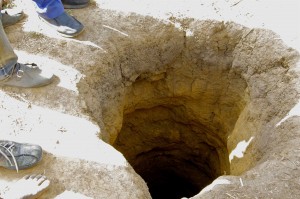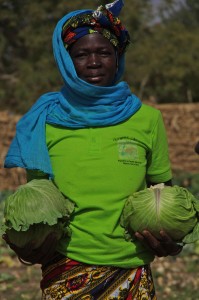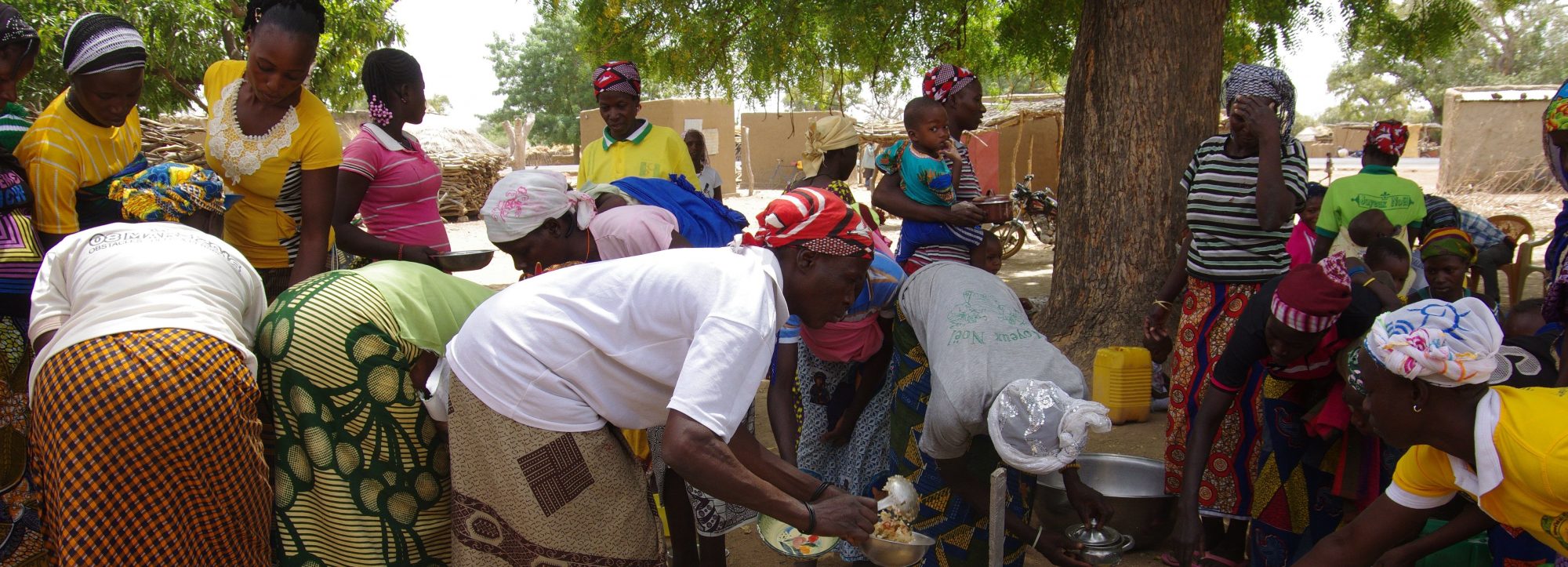by Judy Gray ~ WNC director
I recently had the opportunity to travel to Fada, Eastern Burkina Faso to visit the World Neighbours Canada project site there. As part of the tour, I visited a number of villages that are participating in projects to generate revenue, increase food security and improve the state of the environment. Though many of the villagers have not attended school and indeed many are illiterate,  they need no formal education or scientist to inform them of the effects of climate change … they live the effects of desertification on a daily basis! Over the past 5 – 10 years, they have noticed the irregularity of the once predictable rain patterns, with the rainy season arriving later and ending earlier than it did 10 years ago. Furthermore, their efforts to improve food security by planting a market garden, during the dry season when food becomes scare are met with frustration and even failure as the hand dug 6 to 7 meter wells are drying up as the water level drops … an effect of climate change and desertification. The soil in the area is dry and rock hard to begin with, but with considerable effort can be tilled and seeds planted … but as the season progresses and the heat increases during the months of March, April and May, the once-healthy plants begin to wither as water becomes more and more scarce and eventually the water in the well disappears. Villagers continue to work hard in these gardens, hoping that some of the produce will mature before the searing heat arrives and the water disappears completely. We did see some enclosures with very healthy tomato, cabbage, melon/squash, okra and other plants, where water is available, but we also saw plots with plants that are already withering or are very stunted, because of a lack of water. We saw wells, dug by hand to a depth of 6 meters that are already dry and it’s only early March.
they need no formal education or scientist to inform them of the effects of climate change … they live the effects of desertification on a daily basis! Over the past 5 – 10 years, they have noticed the irregularity of the once predictable rain patterns, with the rainy season arriving later and ending earlier than it did 10 years ago. Furthermore, their efforts to improve food security by planting a market garden, during the dry season when food becomes scare are met with frustration and even failure as the hand dug 6 to 7 meter wells are drying up as the water level drops … an effect of climate change and desertification. The soil in the area is dry and rock hard to begin with, but with considerable effort can be tilled and seeds planted … but as the season progresses and the heat increases during the months of March, April and May, the once-healthy plants begin to wither as water becomes more and more scarce and eventually the water in the well disappears. Villagers continue to work hard in these gardens, hoping that some of the produce will mature before the searing heat arrives and the water disappears completely. We did see some enclosures with very healthy tomato, cabbage, melon/squash, okra and other plants, where water is available, but we also saw plots with plants that are already withering or are very stunted, because of a lack of water. We saw wells, dug by hand to a depth of 6 meters that are already dry and it’s only early March.
 Climate change IS a reali
Climate change IS a reali ty for these people!
ty for these people!
The lack of water, and the need for “forage” or core drilled wells, which can only be dug using machinery, was a need we heard from villagers over and over again. And those forage are expensive to install, costing between $7 000 to $8000 US dollars ~ and are usually installed by the State, after a request has been submitted by the local village committee. This is one reason that APDC, our partner NGO in Burkina Faso, puts so much time, energy and emphasis on helping a village strengthen its village committee (CVD) … so that the village will learn how to mobilize itself to make an organized request for a “forage”. Learning more about the process of applying for and receiving State support for needed materials and services will definitely be a part of my investigations during the next visit.

